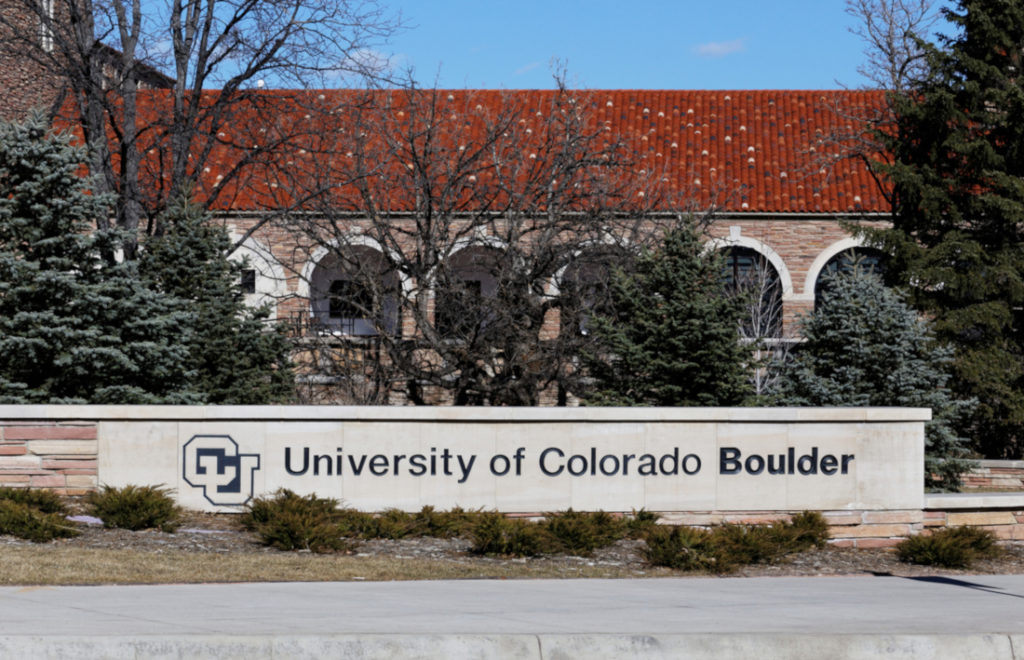Update: Al Manzi, publisher of the Boulder Daily Camera, announced on Friday, Mar. 5, that the newspaper will file a petition asking the Colorado Supreme Court to review the Court of Appeals ruling.
By Jeffrey A. Roberts
CFOIC Executive Director
Calling Colorado’s open-government statutes “seriously flawed” regarding the appointment of chief executives, a Colorado Court of Appeals panel decided 2-1 Thursday that a district court judge erred in ruling that the University of Colorado regents should have publicly disclosed the names and applications of all six candidates interviewed for the president’s job that went to Mark Kennedy in 2019.
In a precedent-setting opinion, appellate Judge Michael Berger wrote that Denver District Court Judge A. Bruce Jones “did a yeoman’s job attempting to make sense of and bring clarity” to “confusing” provisions in the Colorado Open Records Act (CORA) and the Colorado Open Meetings Law pertaining to the naming of chief executive finalists. “We conclude, however, that the district court’s efforts were, in the end, outside the proper role of our courts.”

The judges acknowledged that CORA and the open meetings law, as interpreted by Jones to mean that more than just one finalist must be named publicly, “better advance the sunshine and open government principles that underlie those statutes.” The laws, “as construed by the district court are ‘better’ in that sense, although that value judgment may well depend on one’s point of view. But making statutes clearer, easier to administer, or ‘better’ are not the proper roles of this state’s courts. That is the job of the General Assembly.”
The Boulder Daily Camera sued the CU Board of Regents in September 2019 after the university named Kennedy as the sole finalist for the presidency and denied the newspaper’s requests for the names and application materials of other applicants who were interviewed. The Colorado Independent later published a leaked list of 30 people who had applied, including former Gov. Bill Ritter, former Lt. Gov. Donna Lynne and the leaders of some large out-of-state colleges and universities.
Jones in his March 2020 decision rejected the regents’ interpretation of the open-government statutes as “linguistic gymnastics.” The open meetings law requires “the list of all finalists under consideration” for a chief executive position be made public no later than 14 days prior to the appointment of one of the finalists. CORA defines finalist as “a member of the final group of applicants or candidates” made public under the requirements of the open meetings law, and it allows the public to inspect most records submitted by a finalist. It adds: “If only three or fewer applicants or candidates for the chief executive officer position possess the minimum qualifications for the position, said applicants or candidates shall be considered finalists.”
The regents’ position that only one finalist may be disclosed when more than three individuals meet the minimum qualifications “is both illogical and inconsistent with this provision,” Jones determined.
But Court of Appeals Judges Berger and JoAnn Vogt read the statutes differently, though they described the laws as doing “a very poor job of precisely designating which records regarding which people are subject to mandatory disclosure.”
“By the statute’s plain language,” they concluded, “a ‘finalist’ is a person who is disclosed by the appointing entity as a finalist — who is ‘made public.’” They questioned how a court is supposed to determine who makes up the list of finalists. Jones’ interpretation — that finalists were those interviewed by the regents — is “reasonable,” the appellate judges stated, but it “reflects a policy decision that is for the General Assembly, not the courts.”
As for CORA’s disclosure requirement when there are three or fewer qualified applicants, Berger wrote: “Under the plain language of the statute, there is no minimum number of finalists if there are more than three minimally qualified applicants … Had the General Assembly intended that a minimum number of finalists be disclosed when more than three applicants possessed the minimum qualifications, it could have, and presumably would have, said so. But it did not.”
CORA and the open meetings law “permitted the Regents to do exactly what they did. Whether that is good policy or good government is not for us to decide.”
“I’m disappointed by the ruling because it potentially limits the press’ ability to stand in for the public in reviewing the actions and decisions of their elected officials, specifically regarding hiring processes for unelected leadership positions,” wrote Julie Vossler-Henderson, senior editor of the Daily Camera, in an email to the Colorado Freedom of Information Coalition.
“I think the CORA statute already is clear about the meaning of finalists, and that it specifically refers to a group of finalists outside of instances involving a single applicant, and I hope the General Assembly does not amend it to allow a single finalist.”
The legislature is considering a bill that would clearly allow public bodies to disclose just one finalist when choosing a chief executive. Meanwhile, the Court of Appeals ruling may have bearing on several school districts hunting for new superintendents and it undoubtedly will affect a similar ruling in El Paso County District Court. In that case, a judge determined that Academy District 20 in Colorado Springs improperly denied a parent’s CORA request for the names and applications of all superintendent finalists.
CFOIC supported the district court’s ruling in the Daily Camera’s case in an amicus brief filed with the Court of Appeals.
“It is disheartening that the two-judge majority adopted such a tortured and illogical construction of the open meetings law, which unmistakably mandates public disclosure of the ‘list’ of the ‘members of the group’ of finalists,” said CFOIC President Steve Zansberg. “This erroneous precedent will undermine the public’s trust in our state’s institutions until it is corrected by the Colorado Supreme Court or the General Assembly.”
A third judge on the Colorado Appeals panel, Judge Jerry Jones, wrote a dissenting opinion. While the CORA and open meetings law provisions on chief executives “could stand some clarifying revision,” he stated, the statutes “unambiguously contemplate that, unless there is only one applicant for a position, there will always be more than one ‘finalist.’”
The majority’s opinion “leads to an absurd result,” the appellate judge continued, “because it allows each appointing entity unfettered power to determine who is a finalist. Different appointing entities can take different approaches and can manipulate their procedures to shield information from disclosure in spite of the policies served by CORA and the (open meetings law). In other words, under the majority’s interpretation, ‘finalist’ really has no meaning at all — it’s just whatever an appointing entity says it is.”
Eric Maxfield, a Boulder attorney who represents the Daily Camera with attorney Robert Gunning, told CFOIC the newspaper hasn’t yet decided whether to ask the Colorado Supreme Court to review the Court of Appeals decision.
The appellate court also reversed the district court’s order granting attorney fees and court costs to the Daily Camera.
Follow the Colorado Freedom of Information Coalition on Twitter @CoFOIC. Like CFOIC’s Facebook page. Do you appreciate the information and resources provided by CFOIC? Please consider making a tax-deductible donation.




